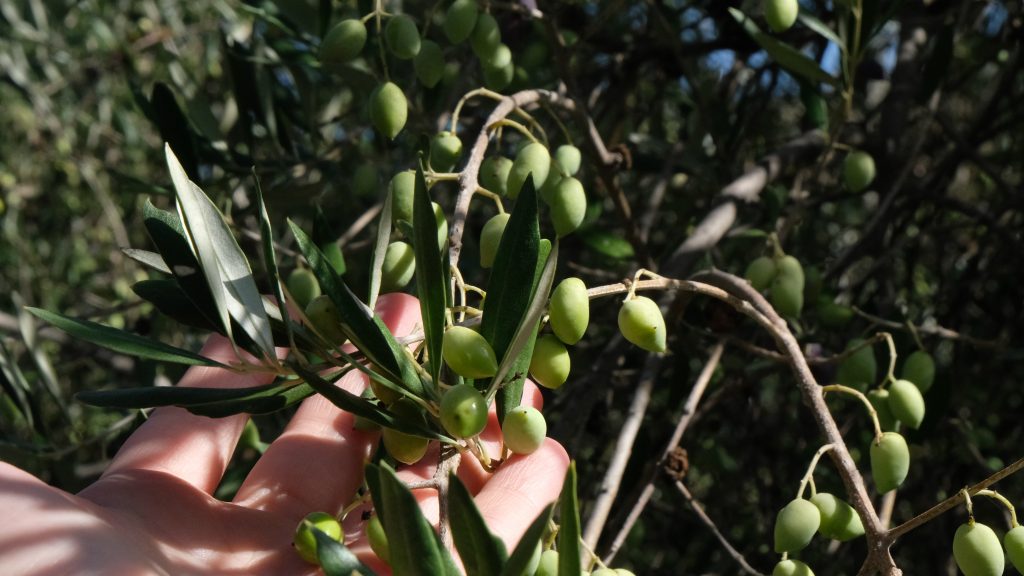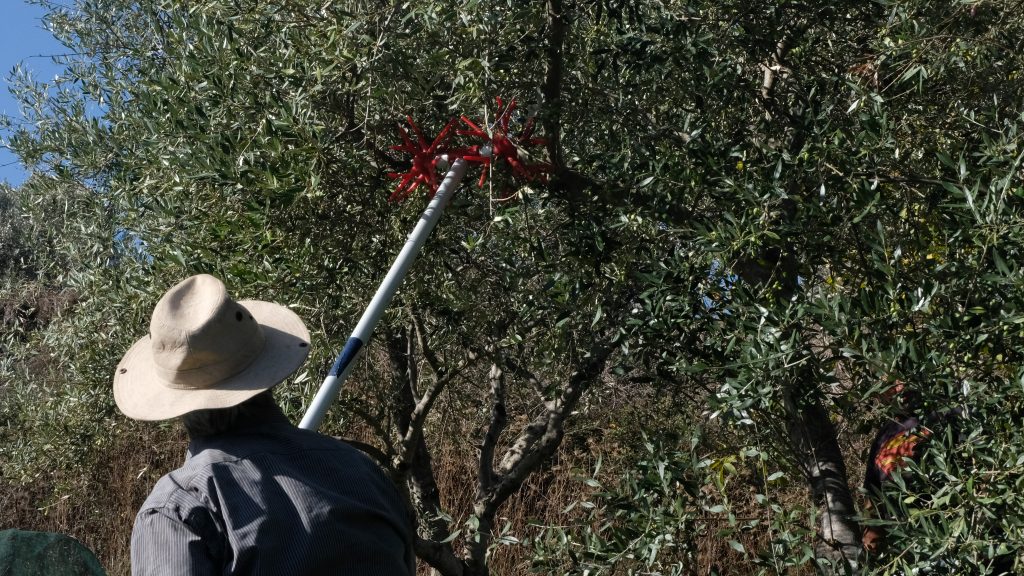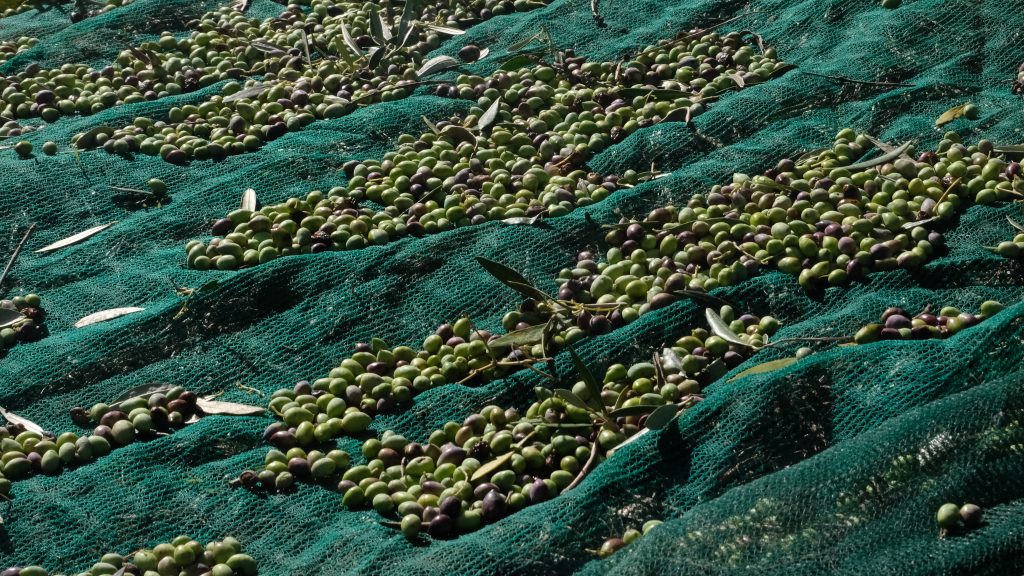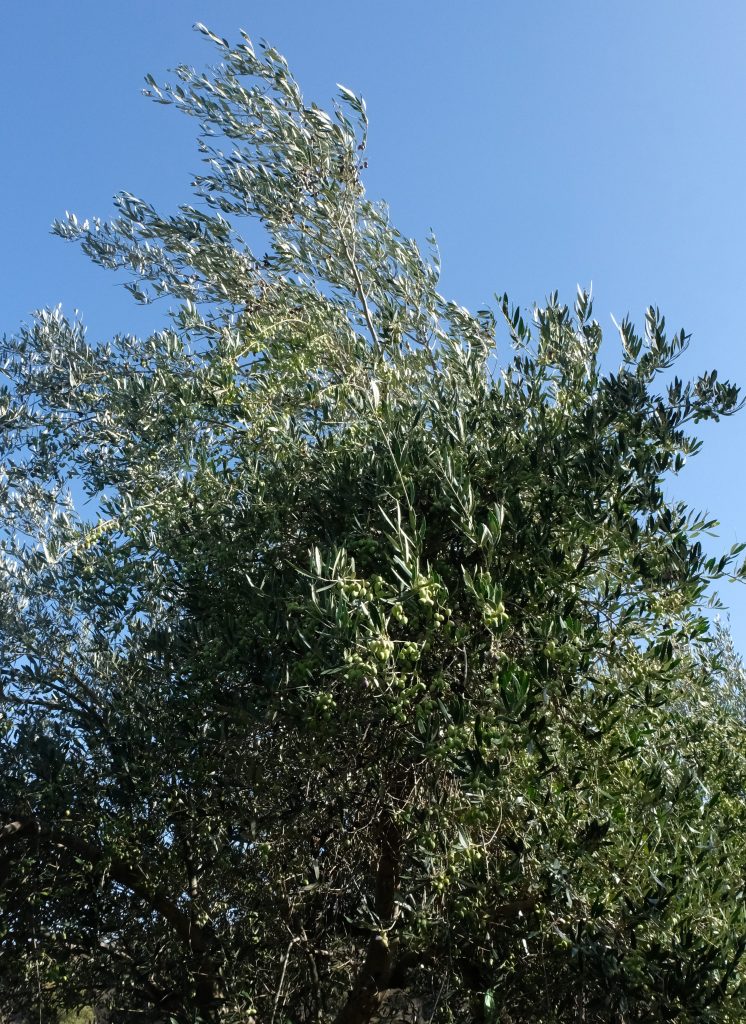
European Food Safety Authority (EFSA), the EU agency that provides scientific advice and regulation on all food matters, approved a health claim for olive oil polyphenols which states that “olive oil polyphenols contribute to the protection of blood lipids from oxidative stress”, due to its high amount of natural antioxidants that can combat our free radicals and help us prevent some cardiovascular diseases.
Besides, a 2005 study shows that the molecules of oleocanthal (present in newly pressed EVOO) and ibuprofen drug appear to share a similar chemical effect: they both work by inhibiting the action of the enzymes involved in inflammation pathways, working as anti-inflammatory substances.
The beneficial effects of cooking with Extra Virgin Olive Oil and of the overall Mediterranean diet are well-known by now. But how does the harvesting work and, consequently, the influence it has on quality and taste? We at Todelli like to understand how things work, the underlying mechanism of the entire chain production. To touch products with our own hands and get to know the faces of those behind the entire process. Only this way it is possible to guarantee the true local products’ origin and quality, as well as to dig more into every single reality and story.

As we already host many EVOO suppliers on our platform and we are recently broadening the circle, over the past few weeks we decided to visit a variety of Olive Groves and farmers in Crete, in the Greek peninsula, during Olive Harvesting Season 2019.
Greece certainly has an ideal climate for flowering and olive harvesting. In general, the quality of the soil and weather conditions of the Mediterranean favour the growth and prosperity of olive trees, which can live up to hundreds of years. With a period of spring flowering, the olive tree begins to bear fruit at the beginning of the summer season which reaches maturity in autumn, when harvesting takes place.
We had the chance to harvest, connect with local producers, learn about their struggles and a lot about Olives and Extra Virgin Olive Oil. We’ve learnt how to smell and taste the quality of it. We’ve learnt to appreciate the work that goes behind the final product. And we did all that to be able to select a great variety of Virgin Olive Oils for you, the Chefs! So here it goes:
Top Tips For Chefs:
- Extra Virgin Olive Oil needs to have an acidity lower than 2%. The warmer the weather while producers are harvesting, the higher the acidity of the Olive oil becomes;
- When tasting Olive Oil you should be looking for the following qualities: clear fruity aroma & bitterness. The specific taste is a very personal experience though;
- Olive Oil is like wine: to appreciate it you need to learn more about it. Anyhow, you can always play it safe when it comes with the Protected Designation of Origin (PDO) warranty;
- Crete is also the mother of three types of Olives: Koroneiki, Hontroelia and Tsounati (the oldest trees in the region). Try to understand the uniqueness of each terroir, only this way you will be truly aware of the product you are offering to your customers.
The harvesting process is very simple and straightforward: some times picked being green and other times being black, we either carefully handpicked olives off the trees or used a special machine that facilitate the process by vibrating back and forth so that the fruits falls from the tree.

Beforehand, peculiar nets were placed on the ground so as to avoid any possible damage and to make the collection easier.

As these estates stand for the best quality, most of their olives were then taken to the mills and pressed right after the collection in order to prevent them from fermentation and oxidation. Eventually, the oil was poured into steel tanks resting in temperature-controlled storage rooms until bottling and shipping.
At Todelli we are proud to be hosts of more than 20+ varieties of Olive Oil from Greece, Italy and Spain, including:
- Amfissa
- Kolovi
- Adramatini
- Latholia
- Koroneiki
- Hontroelia
- Tsounati
- Frantoio
- Moraiolo
- Leccino
- Pendolino
- Leccio del Corno
- Arbequina
- Picual
- Hojiblanca
- Cornicabra
- Manzanilla
- Queen Olives
- Hojiblanca (Black Olives)
- Verdiales

From the Kolovi and Adramatiani plants, for instance, The Premium Greek Olive Oil Company produces Evo3, an Extra Virgin Olive Oil made from black olives only that has an intricate, fruity taste and a golden-yellow to golden-green colour.
As for transmitting the extraordinary qualities of the unique Italian terroir of the Maremma, our supplier Macchiabuia cultivates many varieties such as the Frantoio, the Moraiolo the Leccino and much more. Their Macchiabuia Grand Cru is an elegant golden-yellow extra virgin olive with a medium intensity fruity fragrance, with clear and strong floral notes and a bitterness that releases a distinct scent of chicory.
The premium EVOO supplied from the Spanish OliveClub is no less. On the nose the bitter almond stands out on notes of fennel, chamomile and freshly cut grass, bringing all their terroir’s flavours together.
Head over to 👉🏽 todelli.com to explore the many other handpicked suppliers of Extra Virgin Olive Oil available to buy in the UK.










